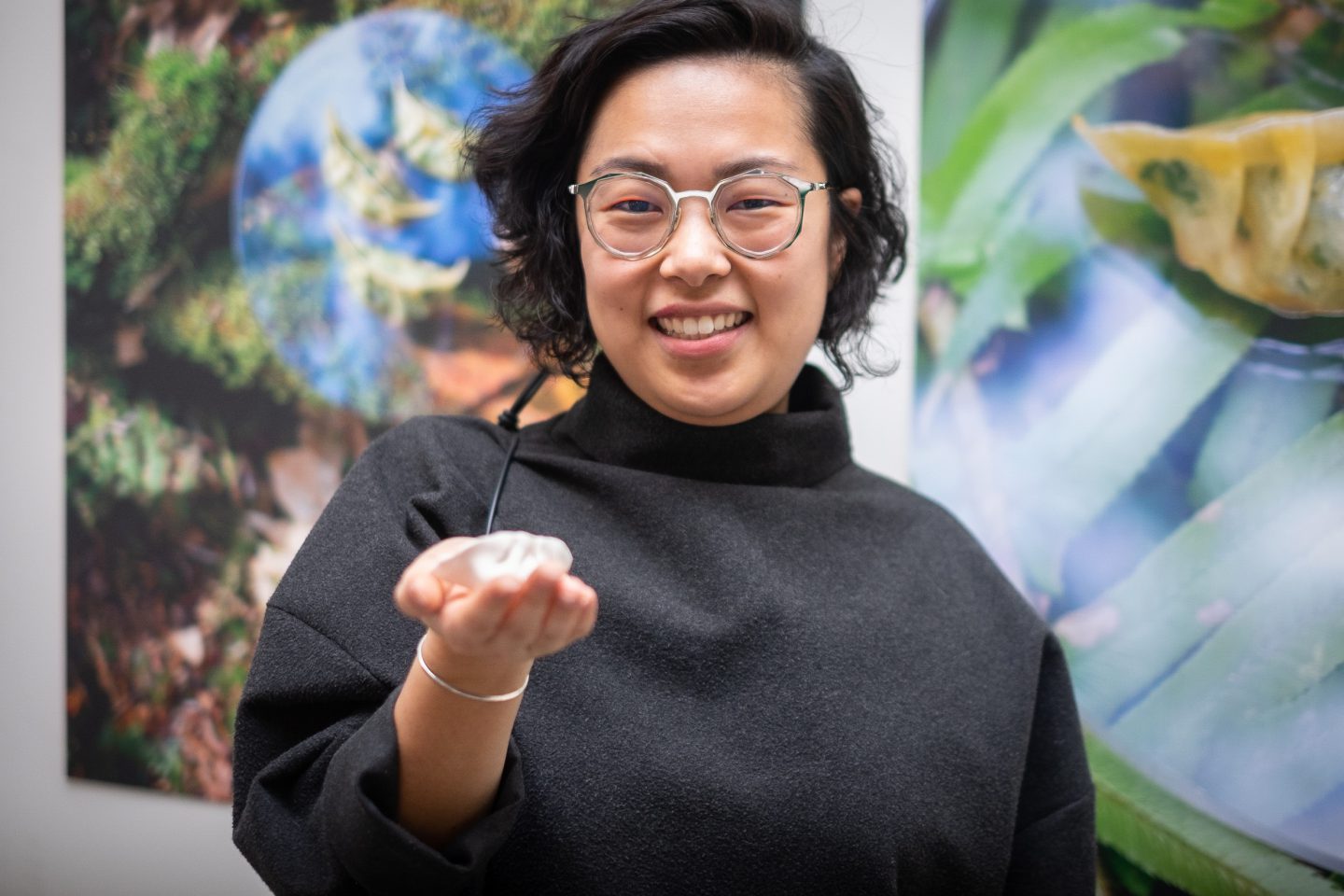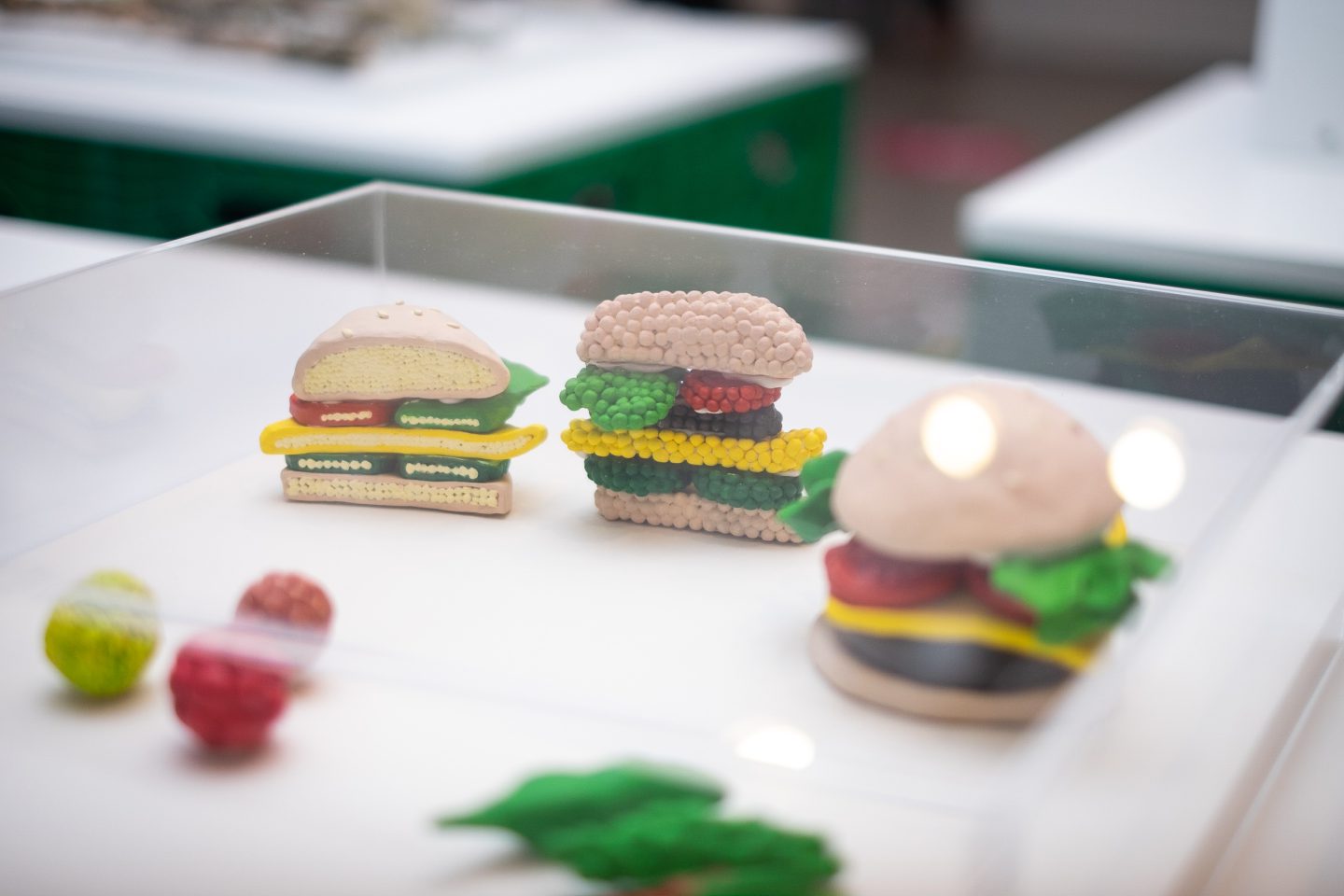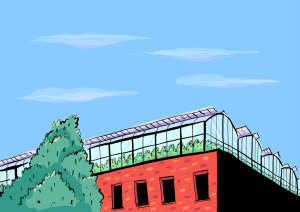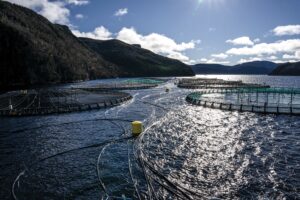Digestive Food is a submission featuring the artist’s idea of a perfectly digestible food that leaves no wasted nutrients. (Photo: Dexter McMillan/Canadian Geographic)
Valerie Kuster of the Dutch Institute of Food and Design, which curated the exhibition, says her goal is to get people to think more critically about food. “A lot of themes are addressed here, all in their own way,” she says. “Food security, but also overeating and over-consuming, for example.”
Some submissions, like food engineered to be entirely digested by our bodies with zero waste, invite us to consider far-off futures and theoretical technology. But several are meant to remind us of problems we face today, including a tea machine that harvests water directly from the air. The water is harvested by the machine on its own time, a stark reminder that water is not to be taken for granted.
For Huynh, familiarity is critical to her vision for the future of food. “When I think ‘future food,’ I don’t really want to eat something novel like a pill or something that’s unrecognizable,” she says. “I want something comforting.”
The producer perspective of the audio narrative presents a very different context for Huynh’s work: “Every local community has developed their own unique dumpling shapes,” it begins. “Our workers have to use standard local ingredients but are free to make new dumpling shapes. It is a way to prevent mutiny.”
Edible Futures: Food for Tomorrow is curated by the Dutch Institute of Food and Design, and presented by the Embassy of the Kingdom of the Netherlands. The exhibit moves to Vancouver in September and to Toronto in early 2020.





